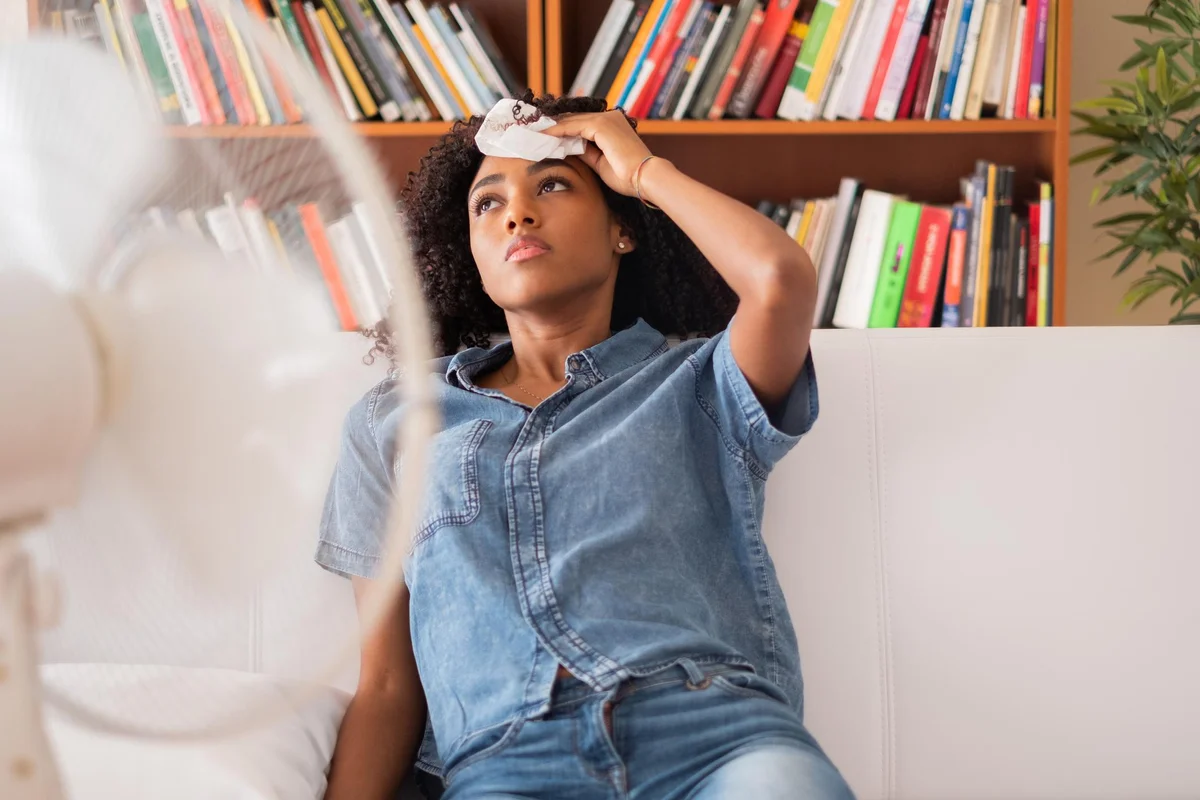Q:
I feel like I sweat much more than other people. Is there something wrong with me?
A:
You may have hyperhidrosis, a medical condition in which the body's cooling mechanism is overactive. This condition affects an estimated 3 percent of the population and can cause four or five times the normal amount of sweat to be produced.
First, a little lesson about sweat. You have 2 to 4 million sweat glands distributed over your body. There are primarily two types of sweat glands: eccrine glands, which cover most of your body but are concentrated on your palms, the soles of your feet, your forehead and cheeks, and, of course, your armpits; and apocrine glands, which are in areas where you have lots of hair follicles, such as your armpits and genital region. Sweat is your body's natural cooling system—the perspiration on your skin cools your body as it evaporates. It also helps hydrate your skin and balance your body fluids and electrolytes.
But if you sweat excessively so that you feel it interferes with your daily life or if you've experienced a sudden change in how much you sweat (too much or too little), you should talk to your health care professional about the problem. Changes in sweating can signal a medical problem.
There are two types of hyperhidrosis:
- Primary focal hyperhidrosis refers to excessive sweating that is not caused by another medical condition or a medication. It usually occurs in a specific area, such as your armpits, hands or feet, and occurs on both sides of your body. It usually begins in childhood or adolescence, and you may have family members with the same problem. You generally experience at least one episode of excessive sweating per week but do not sweat in your sleep.
- Secondary generalized hyperhidrosis is caused by another medical condition or is a side effect of medication. Secondary hyperhidrosis generally causes sweating on larger areas of your body and may occur while you're sleeping. It usually starts in adulthood. Because it may be tied to an underlying medical condition or medication, it's important to talk to your health care professional if you think you may have secondary hyperhidrosis.
During your medical appointment, your health care professional will ask about your medical history, review your medications and conduct a physical exam. You may also undergo blood or urine tests to determine if your sweating is caused by a medical condition, such as an overactive thyroid (hyperthyroidism) or low blood sugar (hypoglycemia).
If you are diagnosed with primary hyperhidrosis, treatment options may include:
- clinical-strength (or extra-strength) antiperspirants
- prescription antiperspirants
- iontophoresis, which uses water to conduct a mild electrical current across the skin's surface, causing the outer layer of skin to thicken and partially block the flow of sweat to the surface
- Botox injections
- miraDry, a device to treat excessive underarm sweating
- oral medications
- surgery, usually reserved for more severe cases
If sweating stops suddenly while exercising in the heat, be aware that it can be a sign of heat exhaustion or heat stroke. Click here to read more about heat emergencies.
Click here to find out more about the different types of sweat and get solutions for your perspiration problems.






